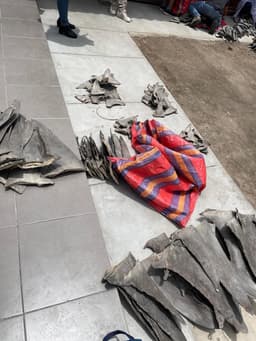Home / Environment / Isolated Tribes Threatened with Extinction as Protections Erode Before COP30
Isolated Tribes Threatened with Extinction as Protections Erode Before COP30
27 Oct, 2025
Summary
- 196 uncontacted Indigenous groups face extinction within a decade
- Logging, mining, and agribusiness cited as primary threats
- Governments accused of weakening policies and agencies meant to protect isolated tribes

A concerning new report published in October 2025 by the NGO Survival International has shed light on the dire situation facing isolated Indigenous tribes around the world. The report, titled "Uncontacted peoples: At the edge of survival," found that there are 196 uncontacted Indigenous groups across 10 countries, with half of these groups - tens of thousands of people - facing extinction within the next 10 years.
The primary threats to these isolated tribes are industrial activities such as logging, mining, and agribusiness, as well as criminal gangs and missionary incursions. The report also warns that even indirect contact, such as the spread of disease from outsiders, could devastate these vulnerable populations. The climate crisis and illegal activities are further endangering their survival.
The report is particularly alarming as it comes on the eve of COP30, which is being hosted by Brazil. The Brazilian government has been accused of deliberately weakening the National Foundation for Indigenous Peoples (Funai), the agency tasked with protecting isolated tribes, by underfunding and understaffing it. Congress has also passed laws that could make it harder to demarcate and protect Indigenous lands, putting many uncontacted groups at risk of invasion and violence.
Similar threats are present in Peru, where disinformation campaigns have denied the existence of isolated peoples, and new laws could open up protected areas to oil and gas extraction, putting these tribes at extreme risk of extinction.
Indigenous organizations and advocates are calling on the Brazilian and Peruvian governments to fulfill their legal and moral obligations to defend the rights and territories of isolated tribes. They argue that these forests, which are home to the world's most vulnerable human populations, are crucial in the fight against the climate crisis and must be protected.




